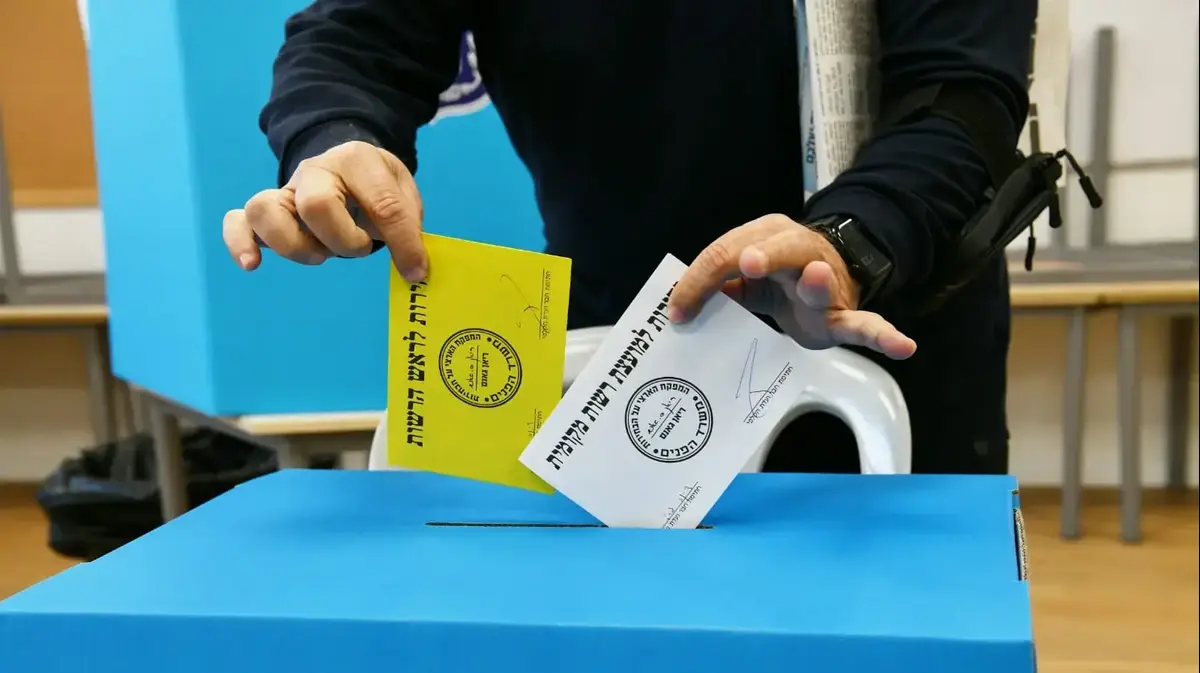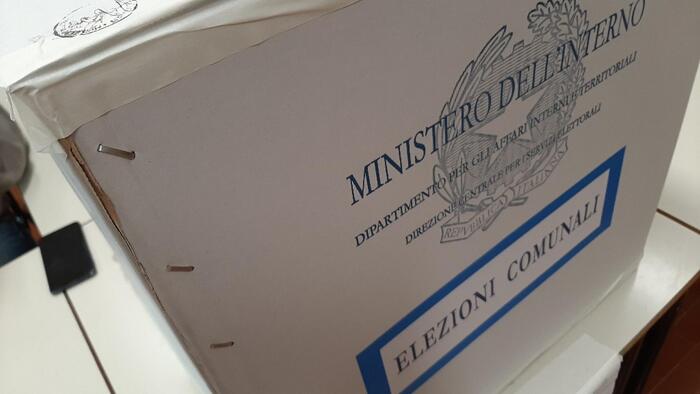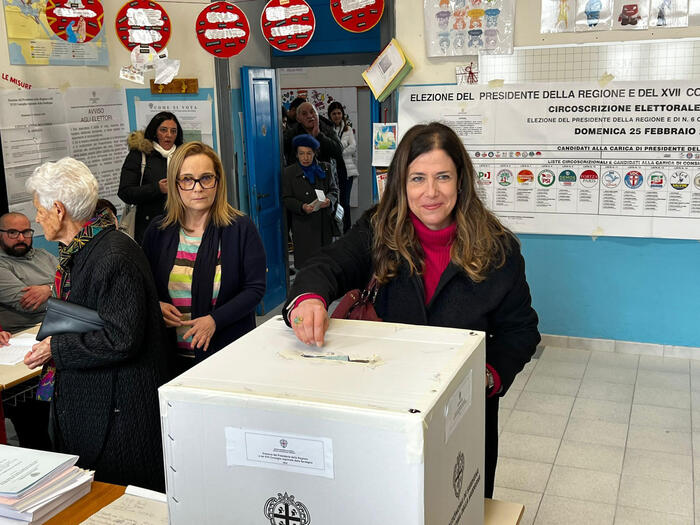Without surprise.
The victories that took shape last Sunday at the end of the first round of the regional ones were all confirmed this Sunday during the second round, all of the thirteen presidents of the regions of metropolitan France - seven on the right and five on the left - transforming the try to afford a new mandate.
A vote that an abstention still stratospheric makes difficult to read, and which scrambles the tracks ten months before the presidential election, the two favorite camps for the first round, the RN and the LREM majority, having completely passed through.
Decryption in cards.
A map of unchanged regions
Grand Slam in France for the outgoing, who were all re-elected.
Right and center retain their seven strongholds, and largely, with 45% of the votes for Valérie Pécresse in Ile-de-France, 52% for Xavier Bertrand in Hauts-de-France or 57% for Laurent Wauquiez in Auvergne-Rhone- Alps.
The left, which retains its five strongholds, also easily for Alain Rousset in New Aquitaine or Carole Delga in Occitanie, more difficult for Loïg Chesnais-Girard in Brittany, also wins the setting in Reunion, in favor of a strategy union which has however been attempted in several other regions, with mixed results.
The map of the regions of France is therefore the same as six years ago, as that of 2010 had remained unchanged compared to the 2004 election.
- LP
Elected, but badly elected
Watch out for trompe-l'oeil triumphs.
By comparing the votes cast to the total number of registered voters, the big winner of this election, abstention, is obvious: none of the regional presidents is really “well elected”.
Xavier Bertrand and Laurent Wauquiez attracted only 16.7 and 17.8% of those registered.
Likewise, if more than 47% of voters in Ile-de-France opted for Valérie Pécresse, less than 15% of those registered actually voted for her.
The least well-chosen list is that of Loïg Chesnais-Girard in Brittany, who, the quinquangular being added to the abstention, attracted just one in five voters.
An abstention never seen
The disinterest, even the distrust, towards the political, reached a worrying level in France, and it is not a week of repeated calls to the vote of the political class which could change the situation: two voters out of three have still sulked the ballot box for an almost equal abstention in the first round, around 66%.
The RN voters, in particular, were not at the rendezvous.
The LREM electorate, which however had no candidate in a position to win, was more mobilized.
As in the first round, the more we drop in the age groups, the higher the abstention.
And as in the first round, Pays-de-la-Loire, the Grand Est and Île-de-France are the most affected by this phenomenon.
Are there areas where we abstained even more than in the first round?
15,000 municipalities are in this configuration, according to our count, but they are mainly small municipalities, and therefore, in total, a very small fraction of the population.
We still note in the map below a renewed abstention in the south of the Auvergne-Rhône-Alpes region, which can sometimes be explained by the absence of a second round in the departmental.
The right keeps its seven regions
The eyes of political commentators were in particular turned to three right-wing candidates before these regional elections.
At the end of the first round, Laurent Wauquiez, Xavier Bertrand and to a lesser extent Valérie Pécresse (the last two left the Les Républicains party), possible presidential candidates, were no longer afraid of much.
On Sunday, they all strengthened their position.
The right-wing vote map also shows how much these three figures polarized the vote of party activists.
Three territories to which we must obviously add the Paca region of Renaud Muselier, who largely beat Thierry Mariani on Sunday evening.
Read alsoAfter the victories of Bertrand, Pécresse and Wauquiez, the race for 2022 is on
Let us not forget either the Pays-de-la-Loire region of Christelle Mor Anglais, vice-president of the party, who won more than 110,000 votes between the two rounds to win with 46% of the votes cast.
Elsewhere, one could almost speak of "white zones", starting with Occitanie and New Aquitaine, two left-wing bastions in which the candidates invested by LR had all the trouble to exist Sunday evening.
Aurélien Pradié could not do better than 18.2%, while Nicolas Florian does not exceed 15%.
The PS feels growing wings
Olivier Faure, the boss of the Socialist Party, can be satisfied this Sunday. The PS and its allies had five regions in France, they all keep. Better still, the five region presidents who will be reelected or who could be reelected (Loïg Chesnais-Girard must manage a "third round" beforehand) are all members of the rose party. With some prestigious victories, in particular that of Carole Delga, who achieves the best score in this second round of the regional elections after having given herself the luxury of refusing an agreement in the second round with Antoine Maurice, the EELV candidate. Alain Rousset also won on his name in New Aquitaine.
And then there are the disappointments.
The lists of union of the left led by environmentalists and supported in the second round by the Socialists did not weigh during the second round.
Julien Bayou's list in Ile-de-France has been greatly exceeded by that of outgoing president Valérie Pécresse.
Same thing in Hauts-de-France with Karima Delli, under 22% Sunday evening despite a union recorded in the first round.
And if the Paca region is not on the left vote map, it is simply because it had to withdraw before the second round for the second time in a row in the region, in the name of the Republican Front.
The RN kept away
The time has come to take stock at the National Gathering and opinions differ somewhat on the strategy to be adopted in the coming months. Before approaching this second round, Marine Le Pen's party could only hope to win in one region, namely the Provence-Alpes-Côte d'Azur region, while the polls of the in-between laps continued to place Thierry Mariani neck and neck with outgoing LR president Renaud Muselier. A victory would have changed everything but the defeat is heavy and comes to record the inability of the RN to gain regions. Certainly, Thierry Mariani won a little over 100,000 votes in one week. But it is far from sufficient in the face of 280,000 additional votes gleaned by Renaud Muselier, who took advantage of the “republican front” after the withdrawal of Jean Laurent Felizia from the left list.
Read alsoRegional: the RN still misses the mark
Elsewhere, in metropolitan France, the National Rally even lost votes in five regions between the two towers.
This is the case in Brittany, Auvergne - Rhône-Alpes, Ile-de-France (more than 30,000 votes lost for Jordan Bardella), Normandy and in Pays-de-La-Loire.
Elsewhere, the increases observed are relatively small.
Largely insufficient in any case to have any hope.
And the departmental, by the way?
At the same time as the regional elections, the departmental elections were held on the last two weekends, which went a little unnoticed.
Who did the French vote for?
Here we have a relative layer of the regional election: the “old world” shares the seats, with a left firmly anchored in Brittany, the South-West and Occitania, and the new one shares the crumbs.
Side surprises, Finistère, Puy-de-Dôme, but especially Val-de-Marne, the last communist department, have swung to the right.
Conversely, the left won the Côtes-d'Armor and Charente.
The results, municipality by municipality, can be found in our search engine.









